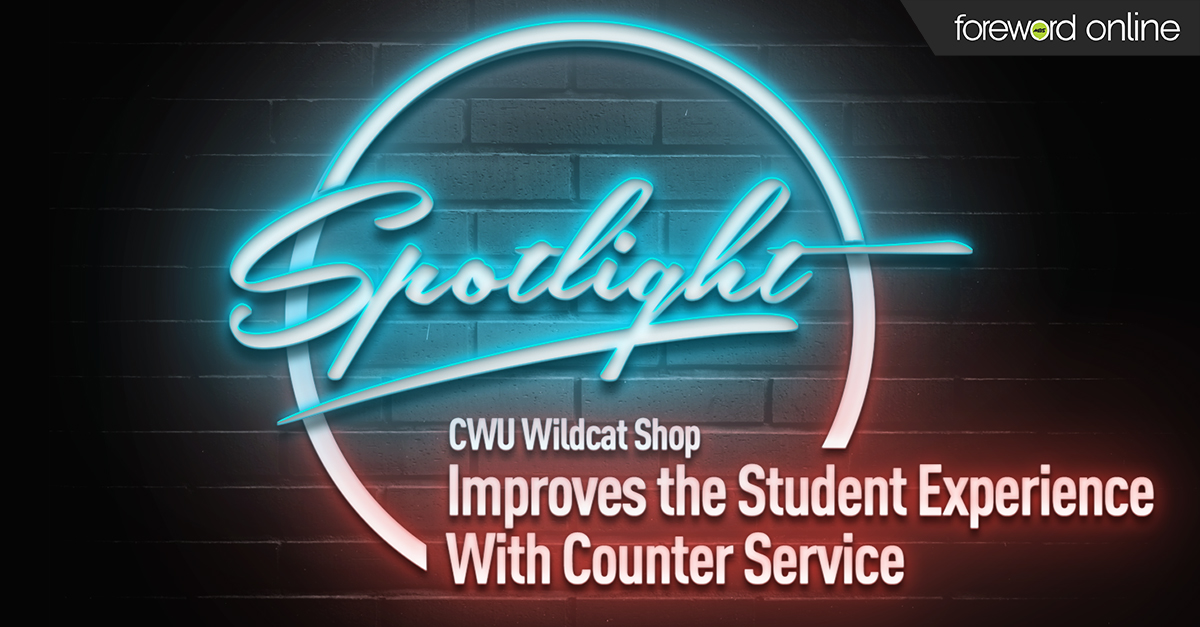We had the pleasure of sitting down in Oklahoma with Territory Manager David Ritz to discuss how he thinks college stores can gain student trust.
 What is a misconception that students might have about the college store?
What is a misconception that students might have about the college store?
What students don’t understand is that any profit the store makes goes back to the union or university to offset costs. At the school I came from, the bookstore essentially paid the bond payment. Most, not all, colleges use the bookstore to offset expenses. That’s an important thing for students to understand.
What ways are stores making themselves invaluable to campuses?
Overall, they are exploring avenues that can help them offer what the students are looking for — whether that means expanding their snacks, food, candy or gift wear type items. Those items are streamlined as well. Stores are not being as frivolous in what they offer. They really look at what they spend their money on and how it can become profitable for the store.
One store takes a picture of items they see at conventions and posts it on Facebook, getting their followers to say, “Oh that’s cool. We’d buy that.” When you go into the store, the things they sell would just blow you away. It’s all because they got their students involved.
How can college stores get more involved with students on campus?
It can start with just being visible in the store. I realize there are things that have to be done, so sometimes you have to be in your office with the door closed and not accepting phone calls. But listening to your students in the store, and even at the buyback counter, lets you know what’s really happening. At buyback, you can hear what your students are saying about how much they used their books.
When I go I usually communicate it back to the store what I heard, but not everyone does. Like, “Do you know that your faculty that doesn’t use the access code for this book?” Many times, custom books are brought back still in the shrink wrap, but we can’t buy them back because they are custom. Maybe the faculty could adopt a national edition rather than a custom edition, and the book would have a national wholesale value.
Is getting involved a factor in winning student trust?
Yes. Get involved with students and student organizations. If an organization approaches you, whatever you can do within your realm to help them is beneficial. If it is to donate — trust me everyone hits the bookstore up for a donation — learn how to make your donation count. I started tracking my donations in the store and turning that into my VP for the year. Down to plastic bags we donated — those cost the store. It helps to show your worth to the college or university. The store is so much more than the bottom line.
There are gives and takes with everything. Be on committees. Sacrifice your time to do that. Show that the store is viable and profitable and that you are working to make sure the students see the store’s benefit as well.
Is online pick-up becoming a good way to drive foot traffic to the store?
It is. There is in-store pick up and there is something called reservations. Reservations are where the student reserves the book but isn’t paying for it in advance. It is a good program, but it has its own set of challenges. The problem with reservations is that you might have a room full of books waiting to be picked up that haven’t been paid for, and you have to hold them even if you run out of a book on the floor. Some students might never come to pick up the books they reserved because they have gone online or forgotten they made the reservation and bought them in the store. I do think reservations is a great program, but in-store pick up, where the books are paid for immediately and taken out of you inventory, has less risk.
How do you help college stores in your territory?
I think it is important as a territory representative with MBS to help my customers however I can. Whether it is working rush or sitting down and talking about my observations. Many of them know my experience. I have been very involved in the Southwest College Bookstore Association, and I have taught several classes. I am honest with them and tell them this is what I see and how it could be done differently. I feel that while I work for a wholesale company, we offer more than just textbooks. We can help any school with any need, issues or problems they have. If we at MBS cannot, then we definitely have the connections to make sure they are taken care of. And that’s my goal. Making sure they are taken care of — whatever their need may be.
Check out the first part of David’s interview discussing how college stores can stay viable in today’s changing market.




.jpg)
